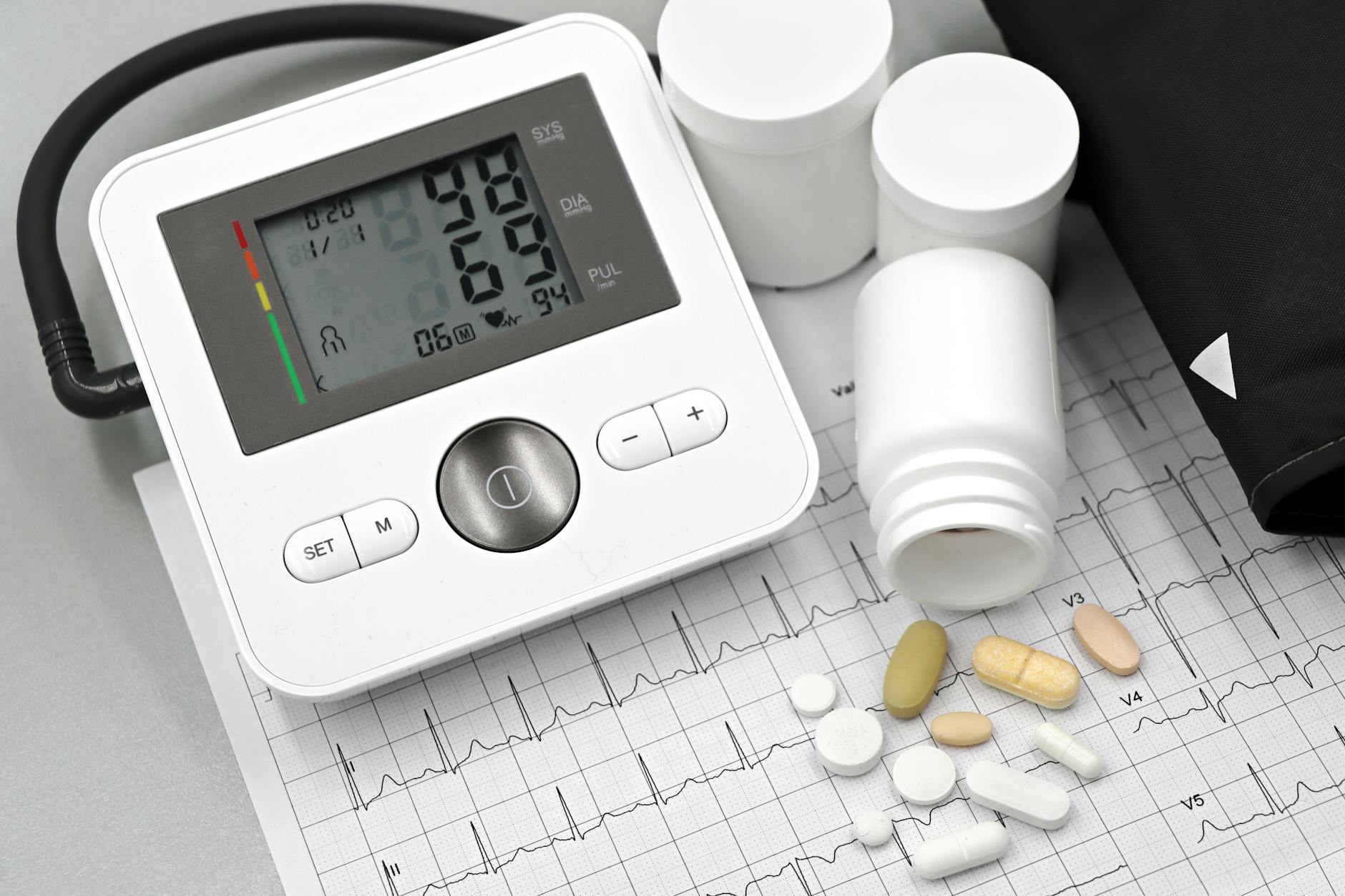Hypertension, also called high blood pressure, is one of the most common long-term health conditions in Uganda. It means that the force of blood against the walls of the arteries stays too high over time. If not controlled, hypertension can silently damage the heart, brain, kidneys, and eyes, leading to serious complications such as stroke, heart failure, and kidney disease.
If you are experiencing persistent headaches, dizziness, chest discomfort, or have concerns about your blood pressure, you can get personalised advice from licensed doctors through Hope Plus. This premium service helps you get timely care and avoid complications.
What is Hypertension?
Blood pressure is considered high if it is consistently above 140/90 mmHg, measured on at least two or three separate occasions. Most people with hypertension may not notice symptoms until complications develop, which is why routine blood pressure checks are very important.
Classification of Blood Pressure
- Normal: below 120/80 mmHg
- Pre-hypertension: 120–139 / 80–89 mmHg
- Stage 1 Hypertension: 140–159 / 90–99 mmHg
- Stage 2 Hypertension: 160/100 mmHg and above
Causes
- In most people, the exact cause is not known (essential hypertension).
- In some, hypertension develops due to other conditions (secondary hypertension), such as:
- Kidney disease
- Hormonal disorders (endocrine diseases)
- Pregnancy complications like pre-eclampsia and eclampsia
- Certain medicines, including steroids and decongestants with caffeine or pseudoephedrine
Risk Factors
- Family history of hypertension
- Being overweight or obese
- Physical inactivity
- High salt intake
- Excessive alcohol consumption
- Diabetes and abnormal cholesterol levels
- Race and genetic factors
Symptoms and Clinical Features
Most people with hypertension have no symptoms, which is why it is often called a “silent killer.” When symptoms do appear, they may include:
- Headaches
- Palpitations
- Dizziness
Hypertension may first show itself through complications, such as:
- Stroke (brain)
- Heart failure (heart)
- Kidney failure (kidneys)
- Vision problems (eyes)
Investigations
To confirm diagnosis and check for complications, healthcare providers may recommend:
- Urine tests
- Blood sugar tests
- Kidney function tests (plasma urea and electrolytes)
- Chest X-ray
- ECG (electrocardiogram)
Treatment and Management
The main goal is to keep blood pressure below 140/90 mmHg, or below 130/80 mmHg for people with high cardiovascular risk (such as diabetes or previous stroke).
Stage 1 Hypertension
- Lifestyle adjustments are the first step:
- Reduce salt intake
- Exercise regularly
- Lose weight if overweight
- Stop smoking
- Limit alcohol intake
- If blood pressure remains high after 3 months, medicine is started:
- Amlodipine 5 mg once daily
Stage 2 Hypertension
- Amlodipine 5 mg once daily plus an ARB such as Losartan 50 mg once daily (or Valsartan 80 mg or Telmisartan 40 mg).
- Alternatively, an ACE inhibitor such as Lisinopril 20 mg or Enalapril 5 mg may be used instead of ARBs.
If Blood Pressure Remains High
- Stepwise increases in medicines are made, for example:
- Increasing amlodipine to 10 mg daily
- Increasing ARB/ACEI dose
- Adding a thiazide diuretic such as Hydrochlorothiazide 12.5 mg once daily
- If still uncontrolled, referral to a higher level of care is recommended.
Special Considerations
- People with diabetes, kidney disease, previous stroke, or heart disease are considered at high cardiovascular risk and may need stricter control.
- Statins (atorvastatin or simvastatin) and low-dose aspirin may be recommended in those with a history of heart attack or stroke.
- Beta-blockers such as Atenolol or Bisoprolol are useful in people who have had a heart attack.
- In pregnancy, methyldopa and calcium channel blockers are safe, but ACE inhibitors, ARBs, and diuretics must be avoided.
Prevention
- Exercise regularly
- Eat a balanced diet and reduce salt intake
- Maintain a healthy weight
- Stop smoking
- Limit alcohol
- Go for regular blood pressure screening, especially if there is a family history of hypertension
Frequently Asked Questions
Can hypertension be cured?
No, hypertension cannot usually be cured, but it can be controlled with lifestyle changes and medicines.
Do I need medicine for life if I start treatment?
Not always. Some people manage to control blood pressure with lifestyle changes, but many need long-term medicine to stay safe.
Is hypertension only a problem for older people?
No. While it is more common with age, younger adults can also develop high blood pressure.
Why is hypertension called a silent killer?
Because most people do not feel unwell until serious complications like stroke or kidney failure occur.
How often should I check my blood pressure?
Adults should have their blood pressure checked at least once a year. Those at higher risk may need more frequent checks.


